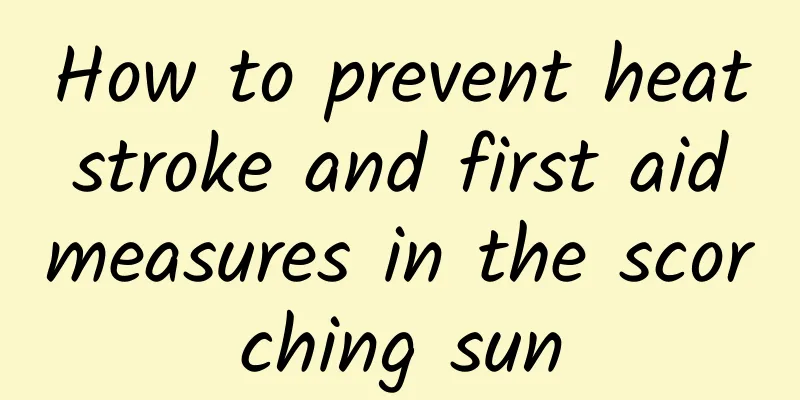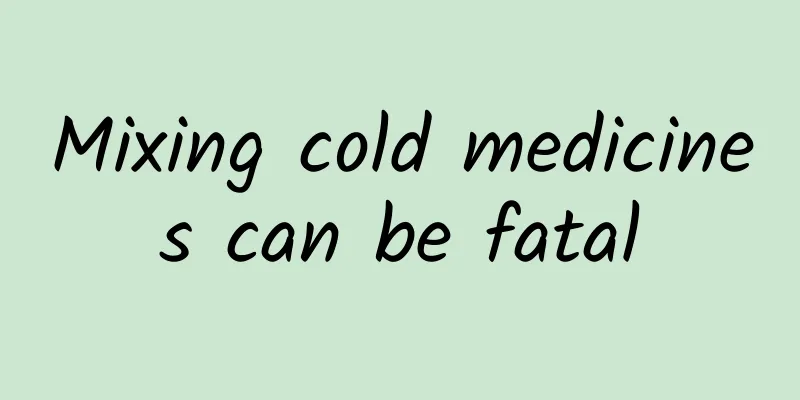How to prevent heat stroke and first aid measures in the scorching sun

|
In the hot summer, the medical community reminds us to take precautions against heatstroke and get more rest in hot weather. If you suddenly feel dizzy, thirsty, have difficulty concentrating, or even feel like vomiting, be careful, you may have heatstroke. What is heat stroke? Heatstroke refers to acute dysfunction of the central nervous system and circulatory system caused by disturbances in the body's temperature regulation function in a high temperature environment. It is more common during high-temperature work and in summer. The body temperature of a person is controlled by the hypothalamus temperature regulation center. The body dissipates heat through skin vasodilation, faster blood flow, sweating, breathing, urination, etc. In an environment with high temperature, high humidity, exposure to the sun, and poor ventilation, the body will have heat dissipation obstacles, resulting in heat accumulation in the body and heat stroke. Overwork, lack of sleep, and high work intensity are the main causes, and the elderly, children, and people with underlying chronic diseases are more susceptible to heat stroke. In the early stages of heatstroke, symptoms include headache, dizziness, palpitations, and fever. In severe cases, nausea, vomiting, convulsions, coma, loss of consciousness, and even death may occur. Three major causes of heat stroke 1. Increased heat production Working in hot seasons or in high temperature, high humidity, poorly ventilated environments, and insufficient heat prevention and cooling measures. 2. Reduced heat dissipation Heat dissipation disorders can be caused by heavy moisture, excessive obesity, wearing tight or poorly breathable clothing, congenital lack of sweat glands, scleroderma, scar formation after large-area skin burns, taking anticholinergics, antihistamines, antidepressants, beta-adrenergic receptor blockers, diuretics, phenothiazines, as well as circulatory dysfunction such as dehydration, shock, heart failure, etc. 3. Decreased body heat adaptability The elderly and infirm, women in the postpartum period, and patients with underlying diseases such as cardiovascular and cerebrovascular diseases have relatively weak ability to adapt to heat and are more susceptible to illness in the same environment. How to prevent heat stroke 1. Summer is hot and muggy. If you don’t take preventive measures, you are likely to get heat stroke if you stay in the hot sun for just half an hour. Therefore, try not to go out after 10 a.m. or before 4 p.m. unless necessary. If you really have to go out, please take protective measures, such as drinking enough water, holding a parasol, wearing a sun hat, and applying sunscreen. These are all good preventive measures. 2. Comply with high temperature work regulations and avoid staying in high temperature, high humidity, and closed environments for a long time. High temperature work should strictly comply with regulations; outdoor work in summer should actively take sun protection measures to avoid long-term exposure to high temperature, high humidity, and closed environments. Sufficient drinking water should be ensured, 1.2 to 1.5 liters per day, and you cannot wait until you are thirsty to drink. After sweating a lot, you should drink salt water in moderation. Pay attention to the combination of work and rest, strengthen physical exercise, and increase the body's ability to adapt to the environment, which can reduce the occurrence of heat stroke. 3. Maintain a balanced diet. In addition to drinking plenty of water, it is also important to consume fruits and vegetables with high water content. Vegetables with high water content in summer include cucumbers, green and yellow vegetables, and radishes; fruits include watermelons, peaches, pears, and tomatoes. In addition, due to the large amount of sweating in summer, sodium ions, potassium ions, and calcium ions may also be deficient, which may cause cramps. 4. Get enough rest. In summer, the days are long and the nights are short, and the temperature is high. Naturally, the biological clock will be affected, and you will feel tired more easily, and develop a "heat cold". The most direct and effective solution is to get enough sleep. 5. Avoid large temperature differences. Have you ever heard of "heatstroke caused by cold"? If you enter an air-conditioned room from the hot outdoors, or drink ice water immediately after exercise, your blood vessels will contract quickly and your body will not be able to regulate its temperature in time, which can easily lead to heatstroke symptoms. First aid measures for heat stroke If heatstroke occurs, you should cool down, rest and drink water in time. Severe patients should seek medical attention promptly. If you have the symptoms of heat stroke or mild heat stroke, you should move to a cool, ventilated place to rest and closely monitor changes in body temperature, pulse, breathing and blood pressure. You can drink light salt water, cold watermelon water, mung bean soup, etc. to replenish water, and take heatstroke prevention and cooling drugs such as Rendan, Shidishui, and Huoxiangzhengqisan. Severe heat stroke patients with symptoms such as dehydration, circulatory failure, cramps, and high fever should be sent to the hospital for emergency treatment in a timely manner. The focus of treatment is to lower body temperature, correct water and electrolyte disorders and acidosis in the body, and actively prevent and treat shock and pulmonary edema. |
<<: What diseases are prone to occur in hot and humid weather? Here is the authoritative answer!
Recommend
Mood changes during early pregnancy
In the early stages of pregnancy, the hormones in...
What is the cause of vaginal itching and leucorrhea?
In fact, vaginal itching is a common disease amon...
I am four months pregnant and my chest is tight.
Chest tightness and shortness of breath in pregna...
When I learned that my classmates were infected, I was so scared that I quickly put on a mask. Comrades, please don’t be careless.
The protracted epidemic prevention and control ha...
Eating bird's nest to prepare for pregnancy
Pregnant women have a new life growing in their b...
How to check your health with leucorrhea?
There are many people who are looking for ways to...
Can I do IVF if my ovaries are not functioning properly?
The health of the ovaries is vital to women. If t...
Are there "traps" on your computer desk? Beware of "mouse hand"!
1. What is “mouse hand”? "Mouse hand", ...
How long does it take for a pregnant woman to stay in a room with formaldehyde?
A newly renovated house is usually not occupied u...
Why does boiled lard change its taste after a long time? How to boil lard without changing its taste?
We all know that lard is a common edible oil. It ...
What are the symptoms of dysmenorrhea? 5 foods that can relieve menstrual cramps
Dysmenorrhea is a common physiological disease am...
How much does the six hormones cost?
The six-item test of female hormones involves man...
Does breast pain in women mean menstruation?
Breasts are the symbol of female beauty and the m...
How many days does it take to detect pregnancy using early pregnancy test paper
The principle of using early pregnancy test strip...
Will eating carrots during breastfeeding reduce milk production?
During the breastfeeding period, the most concern...









